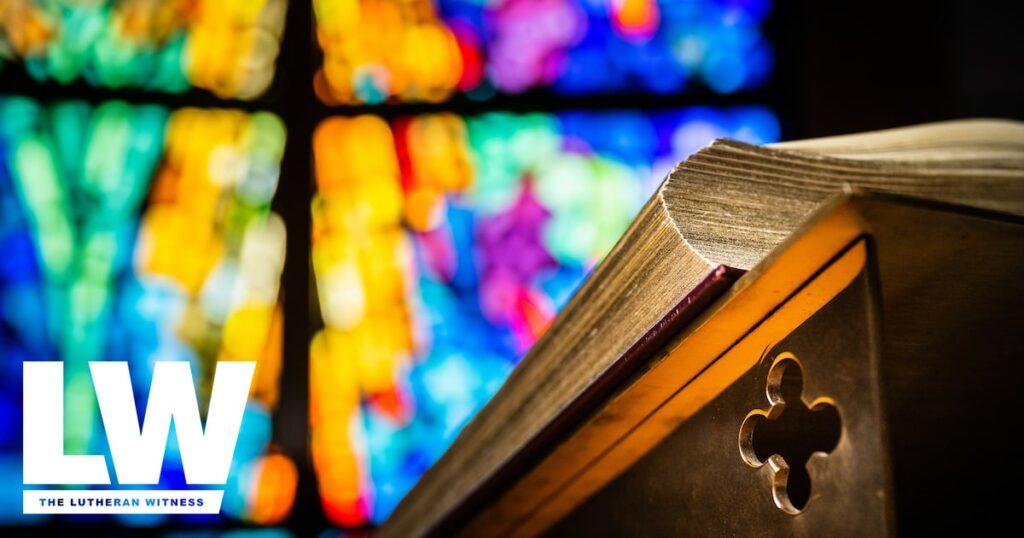by Rev. Matthew C. Harrison
I’ll never forget my first visit to Bethesda Lutheran Communities in Watertown, Wis. As we walked along, we had the opportunity to greet and observe a number of individuals with profound disabilities.
One man, I recall, used an electronic device with a keyboard to communicate with us. He was busy about his job stripping copper wire from an unusable electrical motor. He had his vocation. Slowly and methodically, he produced a large pile of copper to be recycled. I was fascinated to learn that many such individuals actually bid for various jobs and enjoyed compensation for their work. While Bethesda housed provided group care for a number of people with disabilities, its goal was and is to have those with disabilities do for themselves and to become active, integral members of the body of Christ—the Church on earth.
As biblical Christians, we treasure all life—in whatever way God chooses to provide it. There is a continuity in our views regarding drugs that kill life in the womb; government programs that force us to pay for such drugs; the value of children, no matter their context or genetic makeup; and the value of every life from conception to grave and in a resurrected eternity. There is simply no other option for those who believe what Jesus told Nicodemus, “For God so loved the world that He gave His only begotten Son.”
Today, the wonderful thing about work with those with disabilities is that these people are more and more respected for their particular gifts and are encouraged to find and flourish in their particular vocations as they serve in and among us as the Church. While those who are hearing impaired or unable to see face specific challenges in life, these individuals—often knowing no other state of existence—don’t view their disability as a disability at all. In fact, their challenge in life has helped to give them, and all of us, a unique perspective on living life that is rich in our Lord’s grace.
Some years ago, while traveling in the Baltics, I first became aware of the worldwide challenges many who have disabilities face. At that time in Latvia, as in the former Soviet Union and in virtually the whole developing world, those with disabilities (mental or physical) were most often shunted out of sight. People with disabilities bore the burden that a larger society imposed upon them because very often society associated disability with divine retribution. When seeing a man blind from birth, Jesus’ disciples asked him, “Who sinned? This man or his parents?” Jesus responded, “Neither this one sinner nor his parents, [This happened] that the works of God might be manifest in him” (John 9:1ff). In our congregations today, there are still a myriad of opportunities for us to behold the “works of God” made manifest among us in and with people who have disabilities.
There are great ministries of mercy and outreach happening right now by individuals who themselves are challenged. Unfortunately, disabled populations are hugely unchurched. Opportunities abound for a vibrant ministry of mercy and life together with families and parents who care for profoundly impaired children. I’m delighted this issue of The Lutheran Witness is highlighting these opportunities.
—
Pastor Matthew Harrison
“Let’s go!” Mark 1:38
e-mail: president@lcms.org
Web page: www.lcms.org/president





